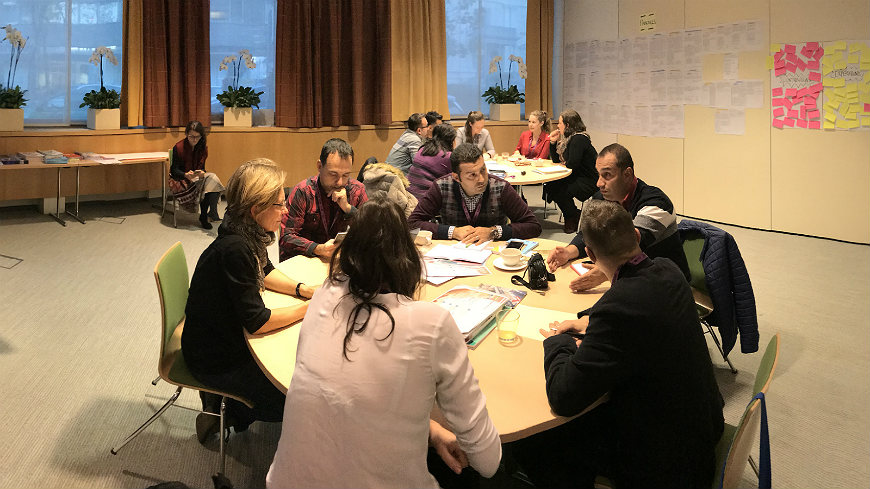For the final meeting and publication in the History of Youth Work in Europe series (History VII), the EU-CoE youth partnership together with the government of Slovenia co-organised on 2-4 October 2018 in Ljubljana, Slovenia, a workshop on the history of international youth organisations and their impact on youth work practice today.
The purpose of the workshop
The seventh, and final, workshop, and the ensuing publication (Volume VII), considered the history of transnational or pan-European youth work activity and the place of transnational youth organisations and movements throughout the whole youth work (hi)story. The workshop addressed the following questions:
- Why they exist?
- Where they came from?
- How they evolved?
- What they did, and what they do now?
- In which ways have they added value to the national stories?
- What were critical changes?
- What are shared core elements and principles that drove practice?
- How did they contribute to how we understand youth work practice today and which of their principles and procedures are central to (or could have more weight in) actual youth work practice and policy?
As with previous seminars, there was reliance on voluntary contributions from those willing to play their part – sometimes academics, sometimes government officials, sometimes practitioners. In other words, the History of Youth Work in Europe material has been compiled from all three corners of what has sometimes been called the ‘magic triangle’ in the youth sector: research, policy and practice. This invariably produced sometimes partial and selective accounts, but the intense debates and the editorial work of the volumes have permitted a critical distance from individual contributions, pointing to divergences and convergences, disconnections and connections, within and beyond the youth work field. Critically, these volumes often suggest how youth work may both inform youth policy and draw from it, in order to cement a stronger position for itself and strengthen a positive offer and experience for young people. International youth work has been especially prominent in this exercise through an expertise that draws on diverse knowledge and experience from across different borders and boundaries.
The addition of the history of international youth NGOs and movements finalised a mosaic of histories of youth work: from grounded national narratives and commentaries, through the connection of those accounts to the changing national political and policy contexts in which youth work had to survive, to youth work activity that almost sits above those national realities in order to advance both their specific agendas (for example, political or faith positions) and some level of shared commitment to a common set of youth work aspirations and principles: the participation, engagement, inclusion, and empowerment of young people.
As the last in the series – a decade of youth work history and reflection – the workshop also therefore seeked to summarise and take stock of the process as a whole – the body of knowledge that has been created as a pioneering record of the evolution of youth work in Europe; the analytic understanding of youth work that can be seen as one catalyst for the momentum behind two European Youth Work Conventions in 2010 and 2015 (with a third envisioned for 2020), their subsequent Declarations and their conversion into a European Union Resolution on Youth Work (2010) and Council of Europe Recommendation on Youth Work (2017); and an invaluable signposting tool that enables youth workers throughout Europe to have a stronger sense of their identity, where they have come from and why they do what they do. The claim of those who have been involved is that the series has, therefore, contributed to research, policy and practice.

